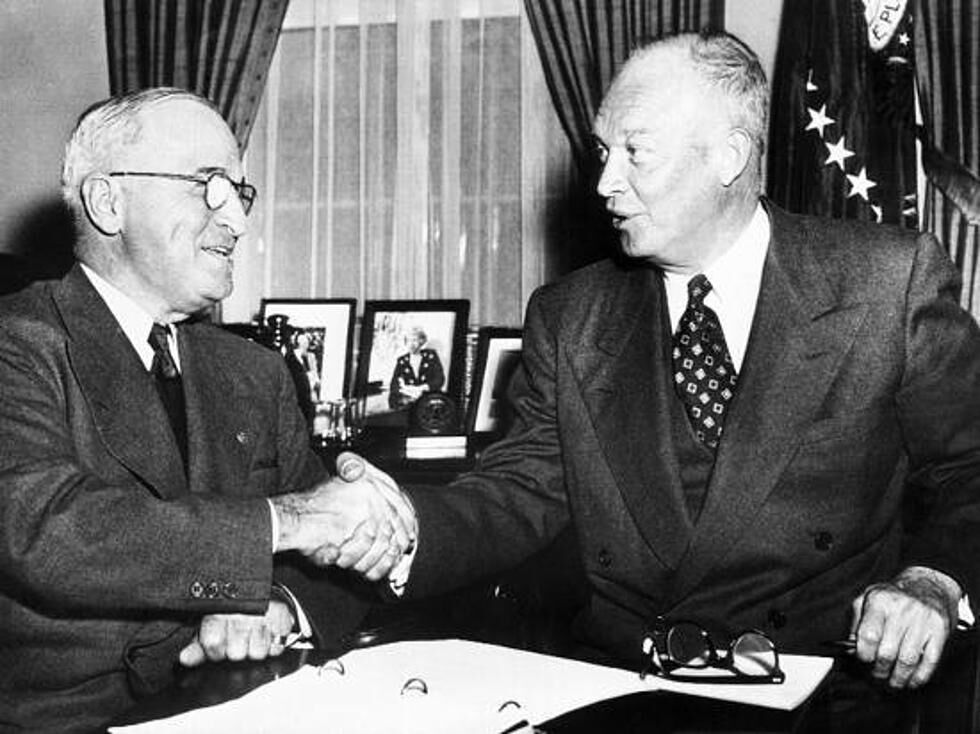“POOR Ike,” President Harry Truman supposedly once said, referring to his successor, a former five-star general. “It won’t be a bit like the Army,” Truman added. “He’ll sit here and he’ll say, ‘Do this, do that,’ and nothing will happen.”
Throughout known human history, however, most members of the public have believed (and continue to believe) that government leaders can “fix” problems, mostly by saying “Do this, do that.” Elect the “right” leaders who will then implement the “right” policies and the “right” laws, and lo and behold, this and that are done.
That’s the “theory.” In practice, government usually causes more or worse problems, most of which are the unintended consequences of previous government “solutions.”
Moreover, electing “new” leaders will not necessarily result in “positive changes” if voter expectation remains the same. And what do many voters expect from their government and their leaders? That they create and implement policies that directly benefit voters. And these include a long list of free or low-cost public services and/or assistance. All requiring funding.
In the NMI’s case, if legislation or public policy could solve any of its current problems — many of which are the same problems people have been complaining about at least since the Trust Territory-era — then those problems would have been solved already. And yet then and now these are still the islands’ “problems”:
The medical referral program — or whatever it is called now — needs adequate funding. Utility rates are “too high.” Salaries are “too low” or not high enough. There should be more good-paying jobs especially in government. Lack of workers for certain jobs. Government scholarships should be more generous. There should be more teachers and smaller classes — and more high-tech schools and more training programs. Roads should be improved or new (and paved) ones constructed. The NMI also needs: better infrastructure; a new power plant; underground power lines; 24-hour potable water; more residential homestead subdivisions; better and more affordable (if not free) healthcare; more police presence; more police officers; more financial and other assistance to low- and middle-income families; more benefits for the unemployed — and the employed.
Now and then, elected officials have been asked to “solve” those problems. They all said that they would.
In 1997, the local economy was at its peak, and the CNMI government’s projected revenue for fiscal year 1998 was over $260 million which is worth about $474 million today. (For the current fiscal year, the CNMI government is hoping to collect $109 million for its operations, but the new administration says this number is likely to be reduced.) In an interview with Howard P. Willens, then-Gov. Froilan C. Tenorio said he was happy to report that because the government was awash with cash thanks to a booming local economy, he had provided more funding for, among other things, the developmental disabilities office. But then he had a meeting with the head of the office who told him that “they need more money” — and “additional staff.”
Why? Because government programs usually create more demand for those programs.
“This is the thing,” Governor Tenorio said. “I just have to tell the people look, if you want me to provide you the services that you expect from the government, then you’d better favor economic development.”
And that is the “secret” of a government that can deliver on its grandiose (and expensive) promises to voters: economic development.
Good intentions count for nothing; results are all. And for best results, you need an economy that can fund government generosity.
But taking money from individuals and businesses, further expanding government by making it “do more” or further increasing the costs of doing business — these will further harm an already ailing economy and make the NMI’s problems worse than they already are.
And no. Government or its officials, however “intelligent” or “noble,” can’t just say “do this, do that” and expect this and that to be done just like that.
Send feedback to editor@mvariety.com












